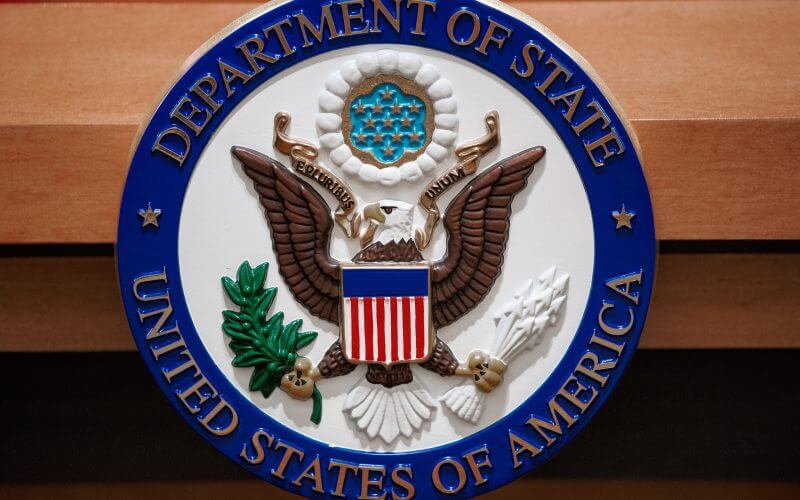Annually, the U.S. allocates over $51 billion in economic aid and military assistance. $25 billion comes from the U.S. Agency for International Development (USAID), while the Department of Defense and Department of State are close behind. Over 20 percent of this aid is divided among four countries: Israel, Jordan, Afghanistan, and Egypt. While well intentioned, corruption, failing infrastructure, or even cultural misunderstandings can mean that U.S. aid causes more harm than good.
1. The Taliban
The US has pledged an additional $55 million in aid to Afghanistan. Over the past fiscal year, this totals to over $1 billion to humanitarian, economic, and military assistance aid to Afghanistan. Foreign aid always comes with criticism, but especially so when the recipient is an enemy of the US and a corrupt, extremist and repressive regime. In Afghanistan, the case against foreign aid has always been corruption. After the Soviet invasion, U.S. funding was used by rival Mujahideen to wage a civil war. Then, the U.S. government and military was manipulated into draining their own pockets after 9/11. Rival tribes and warlords used American ignorance to gain access to an endless flow of money. With this they were able to fight each another for power over the war torn country even long after the fall of the Taliban. Now, humanitarian aid to the Afghan people is lining the pockets of the Taliban at the expense of innocent Afghans and American taxpayers alike.
The Taliban’s “Monitoring and Control Plan of NGOs” provides them with oversight and control of movements and work of various NGOs, including the Red Cross, Doctors Without Borders, and the World Food Program. The Afghan people are desperately in need of this aid to ensure access to basic food and water, education, and health services. However, this Taliban program requires Afghan citizens and foreign NGOs to submit to the Taliban’s brutal rule in order to ensure they receive the necessary aid to survive. The U.S. cannot ensure that its humanitarian funding is being used as it was intended. More than likely, it’s only bolstering the Taliban’s repressive regime.
2. UNRWA
In 2018, the U.S. led by President Trump, decided to end all funding for the United Nations relief and Works Agency (UNRWA) and called the organization “irredeemably flawed.” President Biden, however, reversed this decision in 2021 and contributed $150 million to UNRWA. In 2022, the Biden administration increased its support to $201 million. According to its charter, UNRWA is responsible for health care and education, as well as “preventing conditions of starvation and distress.” UNRWA’s actions, however, make it morally problematic for the Biden administration to continue providing aid.
UN Watch, an NGO that monitors the performance of United Nations missions, reported dozens of examples of UNRWA teachers in the West Bank, Lebanon, and Jordan that overtly expressed support for terror groups, including Hamas and Hezbollah. For example, UNRWA teacher Elham Mansour publicly called for violence against Jews and Israelis saying, “the men of resistance and the Murabitum will slaughter each and every one of you and toss you into garbage heaps, because you are filthy, and you contaminate any land you are in, you Zionists, you scoundrels, you terrorists, may Allah take vengeance on you.” Mansour also said in a separate instance that “Israel deserves nothing but death.” Another teacher, Hanas Daoud, called for all “Muslims to fight against the Jews, until a Jew will hide himself behind a stone or a tree, and the stone or tree will say: Oh Muslim, there is a Jew behind me. Come and kill him.” There are many more examples, but little has been done. Despite the UN calling for ‘zero tolerance’ of such hate, many have kept their posts and suffered no consequences. Also, UNRWA’s educational content has been found to contain hate speech. Some of these textbooks have been funded by the PA and have celebrated Palestinian terrorists, and encouraged terrorism, violence, and antisemitism.
UNRWA has clearly failed to organize itself in such a way to best serve its founding purpose, but instead has created a breeding ground for extremism. The UN Watch has called upon world leaders to insist that UNRWA removes the hostile and dangerous content.
3. Tunisia
In 2011, Tunisia established its first democratic constitution and held free and fair elections. In exchange, the U.S. has given more than $1.40 billion to support its transition. In 2019, a five-year bilateral Developmental Objective Agreement pledged to provide $335 million to ‘increase democratic consolidation.’ Most of U.S. aid to Tunisia has been to support education, encourage employment of women, and grow the private sector. However, the recurring issue of transparency also plagues Tunisia.
Massive efforts were taken to support Tunisia’s budding democratic institutions and free civil society. However, the effectiveness of aid to Tunisia has been severely undermined by corruption. An estimated $1 billion per year has been lost through corruption, bribery, kickbacks, and it’s only worsened in the last year. In 2021, the democratically-elected parliament was suspended and key characteristics of authoritarianism have returned. Since, Tunisian President Kais Saied has slowly worked to turn back years of progress. In July, Saied held a constitutional referendum that, if approved, would consolidate power into the president’s hand and eliminate the hybrid-parliamentary system that now exists. Justification for continued support by the United States without demanding a positive change poses a significant threat to American credibility and the Tunisian people.
4. Burma
Burma first transitioned from an authoritarian state to an emerging democracy in 2010, and the U.S. was instrumental in assisting this change. Billions of dollars in aid were dedicated towards implementing and enforcing equal access to education, enfranchisement, and health services. In 2021, the Commander-in-Chief Min Aung Hlaing overthrew the democratically elected government and established an authoritarian military regime. Millions have been unjustly detained, and torture and rape have become mainstream. Access to fundamental freedoms has been restricted. The Rohingya Muslims in northern Burma have been mercilessly slaughtered. “Clearance operations” have caused over 1 million to flee their homes and tens of thousands have been killed.
After the 2021 coup, the U.S. State Department restructured its aid program to ensure the assistance does not benefit the Burmese government. Aid to Burma is much needed, but needs direction. The Burmese government receives arms from China, India, Pakistan, Russia, and Serbia. Thus, sanctions on the Burmese government have done little to stop the violence. Even after restructuring the aid program, the U.S. government provides over $2 billion in humanitarian aid to support the Rohingya and other populations. However, military presence within northern Burma often prevents the delivery of humanitarian assistance, and often lines their own pockets instead. The Burmese people are suffering immensely and are in desperate need of aid, but the method by which the US has supplied aid may be contributing to the growing strength of the military regime. Thus, the aid program in Burma should be reorganized and subject to much more planning and coordination.
5. South Sudan
South Sudan experiences some of the worst and most ingrained corruption in the world. It has become a kleptocratic system in which government officials control nearly every part of the economy. South Sudan is also experiencing a life-threatening drought and failed harvests have created a ‘famine-likely’ situation. The U.S. provided $612 million in humanitarian aid and $73.1 million in development aid in 2021. Most of this funding goes towards protecting independent media, aiding in conflict mitigation, trauma awareness and reconciliation.
In the World Bank’s Worldwide Governance Indicator, South Sudan received a .9 out of 100 in both Control of Corruption and Government Effectiveness categories. Corruption permeates all sectors of South Sudan’s governance, economy, and civil sector. 66 percent of the population reported paying bribes in the past year. Other issues include lack of election integrity, patronage to the military, embezzlement, and harmful labor practices. Not only is corruption an extractive practice that deliberately harms the society and population, but it undermines the trust in the government and the economy. Without addressing these issues, little progress will be made.
Recently, the U.S. State Department expressed frustration with South Sudanese leaders and decided to end support for the Reconstituted Joint Monitoring and Evaluation Commission. The State Department cited a lack of political will among South Sudanese leaders to establish democratic mechanisms, pass critical legislation, and promote the growth of civil society. The U.S. will still continue to provide $1 billion per year in humanitarian assistance. However, given the extent and nature of the corruption outlined above, it seems futile to continue in this way without stricter oversight of the use of humanitarian aid.










